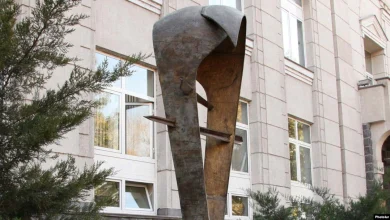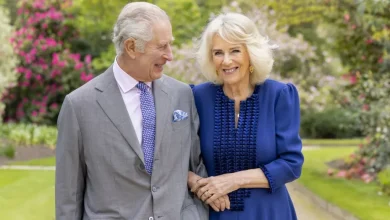We must not wait another century to hold Azerbaijan accountable ethnic cleansing in Nagorno Karabakh, Member of Congress Anna Eshoo said at the congressional Commemoration of the Armenian Genocide.
Below is the Congresswoman’s speech in full:
Mr. Speaker, as the only Member of Congress of Armenian-Assyrian descent, I rise to commemorate Armenian Genocide Remembrance Day, which will be observed next week by the Armenian community in the United States and around the world.
On this solemn occasion, we remember the 1.5 million Armenians and hundreds of thousands of Assyrians, Greeks, Chaldeans, Syriacs, Arameans, and Maronites who were systematically slaughtered by the Ottoman Empire between 1915 and 1923. What all the victims had in common is that they were Christians, and among them, members of my own family. To honor my ancestors and all those who perished, I worked for nearly three decades to pass a resolution recognizing the Armenian Genocide.
For many years, the conventional wisdom in Washington was that a misguided policy of genocide denial served our geopolitical interests. However, thanks to the determined advocacy of the Armenian American community, we overcame this entrenched opposition, and in October 2019, the Resolution passed the House by a bipartisan vote of 405 to 11, ending over 100 years of official U.S. silence. As the vote total was announced, I think my parents, grandparents, and extended family were applauding from heaven.
Now, nearly five years later, it’s important to acknowledge that the fears of the Resolution’s detractors never materialized. Rather than diminishing America’s standing in the world, our recognition of the Armenian Genocide has done the opposite: strengthening American global leadership by affirming our commitment to human rights. I’m proud of the progress we’ve made, but we have more work to do to combat the lasting effects of genocide denial which has left many Americans unaware of this dark chapter of history.
My legislation, the Armenian Genocide Education Act, addresses this issue by establishing a program within the Library of Congress to develop educational resources on the Armenian Genocide to be used in American schools. With nearly 90 cosponsors, the Armenian Genocide Education Act is the most-cosponsored bipartisan bill pending before the House Administration Committee. I urge Chairman Steil and Ranking Member Morelle to report this bill out of Committee as soon as possible. I’m confident it will pass with a large, bipartisan vote when it comes to the floor of the House. This bill is critical because, as is so often said, those who forget history are doomed to repeat it.
Alarmingly, it felt as if history were repeating itself last September when Azerbaijan perpetuated an ethnic cleansing campaign against the Armenians of Nagorno-Karabakh that bore a disturbing resemblance to the mass displacements committed by Ottoman forces a century ago. This atrocity was preceded by a grueling blockade that deprived civilians of food, medicine, and other essentials for over nine months.
We must not wait another century to hold Azerbaijan accountable for the crimes it has committed against the Armenian people. That is why I once again call on the State Department to end U.S. military aid to Azerbaijan, sanction Azerbaijani officials for human rights abuses, and provide desperately needed aid for the 120,000 Armenians who were forced from their homes at gunpoint last year. The best way to honor the legacies of those who perished in the Armenian Genocide is by using our voices to prevent atrocities today.








